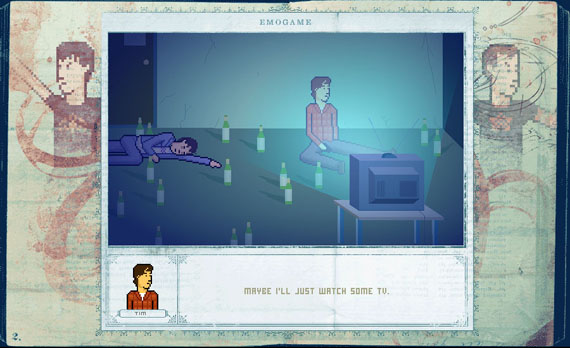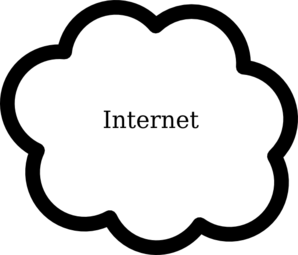
For people of my age, for whom the internet started in the mid 90s, the perpetual newness of everything died when we started to notice the death of web crazes. We buried Strong Bad on top of Newgrounds, and realized the graveyard was several layers deep. Things don't stay online forever, it seems. Everything has a half-life.
Mostly these were inconsequential time wasters; things to do at the computer lab when the teacher was sick, or things to show your friends during lunch if you hung out in the classroom. The one that left any kind of mark on my personality going forward was the Flash-based platformer, EMOGAME. The name is an awkward dated piece of slang now, but in 2002, before there was "viral", this was a leading edge of coolness and satire in my world.
In the time of 2002, post-dotcom bubble hype and pre-social media, the genre culture of indie music seemed to be blossoming. It was always there, of course, but the culture of it didn't begin to turn into the commercial force it is today until the development of its institutions. From my perspective, a few things happened: Pitchfork moved to Chicago and became the fully stocked news & reviews site we know today. The scene had become worth talking about, as seen in the 2003 book "Nothing Feels Good" by Andy Greenwald. Then, acts that were on the periphery of the culture started to bleed into the MTV mainstream.
These acts weren't genre-kings of indie, but they didn't fit into the nu-metal, rap-rock or alternative mold MTV & KROQ had built. So we started to learn about emo, and its familial line toward indie. This tangential relation and mega success did something important: it took the cultural conversation about indie music above ground. In order to ward off posers, the chat rooms and message boards I frequented had to define bands as within or without. The Jimmy Eat World fans were starting to learn about Pavement. Half of us lured in by the casual pop were given the chance to go deeper. For me, with my brain at a soft, impressionable state known as High School, this cultural conversation was a learning experience.
The conversation took place all over the big music internet of the time: Buddyhead, Pitchfork, and a little personal project called EMOGAME by one Jason Oda. It was a retro 8-bit style platformer where you controlled an all-star cast of emotional dudes like Chris Carraba and Cedric Bixler to save The Get Up Kids while slaying the likes of Creed, Enrique Iglesias and the cast of Friends. In their words, it took the day's hip young musicians on a tour to defeat "idol worship of vapid actors and corporate musical entities." The appeal for me was three-fold: It was a rare extensive flash game (it took hours to beat and used save slots), its humor was chock full of pop culture and crude violence like South Park, and its art style was hip several times over.


